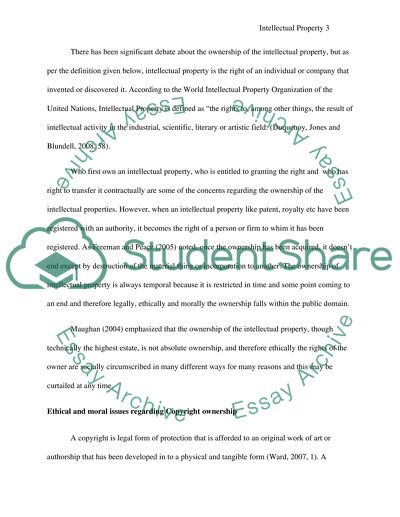Cite this document
(“Ethical and Moral Issues regarding Intellectual Property Research Paper”, n.d.)
Retrieved from https://studentshare.org/law/1413607-ownership-of-intellectual-property
Retrieved from https://studentshare.org/law/1413607-ownership-of-intellectual-property
(Ethical and Moral Issues Regarding Intellectual Property Research Paper)
https://studentshare.org/law/1413607-ownership-of-intellectual-property.
https://studentshare.org/law/1413607-ownership-of-intellectual-property.
“Ethical and Moral Issues Regarding Intellectual Property Research Paper”, n.d. https://studentshare.org/law/1413607-ownership-of-intellectual-property.


